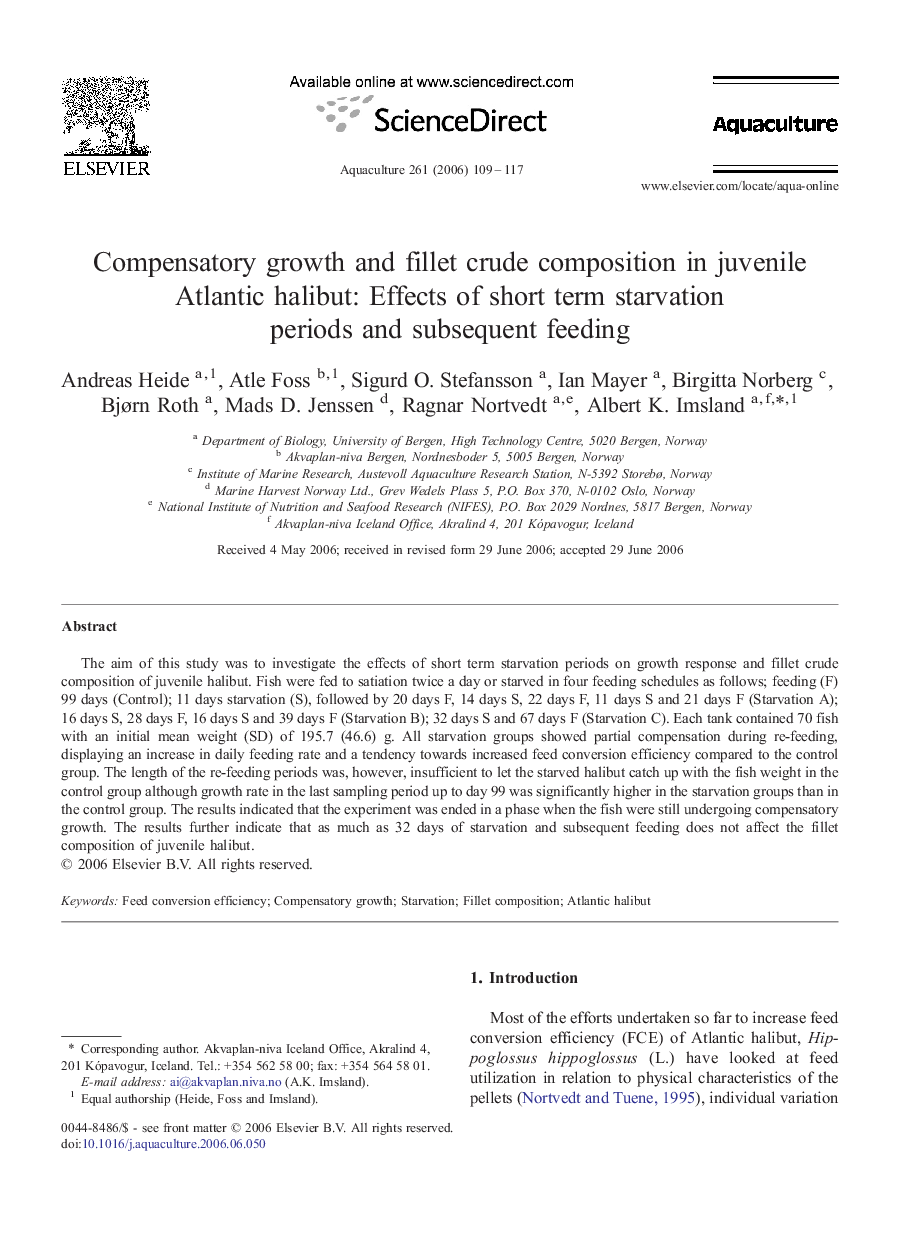| Article ID | Journal | Published Year | Pages | File Type |
|---|---|---|---|---|
| 2425725 | Aquaculture | 2006 | 9 Pages |
The aim of this study was to investigate the effects of short term starvation periods on growth response and fillet crude composition of juvenile halibut. Fish were fed to satiation twice a day or starved in four feeding schedules as follows; feeding (F) 99 days (Control); 11 days starvation (S), followed by 20 days F, 14 days S, 22 days F, 11 days S and 21 days F (Starvation A); 16 days S, 28 days F, 16 days S and 39 days F (Starvation B); 32 days S and 67 days F (Starvation C). Each tank contained 70 fish with an initial mean weight (SD) of 195.7 (46.6) g. All starvation groups showed partial compensation during re-feeding, displaying an increase in daily feeding rate and a tendency towards increased feed conversion efficiency compared to the control group. The length of the re-feeding periods was, however, insufficient to let the starved halibut catch up with the fish weight in the control group although growth rate in the last sampling period up to day 99 was significantly higher in the starvation groups than in the control group. The results indicated that the experiment was ended in a phase when the fish were still undergoing compensatory growth. The results further indicate that as much as 32 days of starvation and subsequent feeding does not affect the fillet composition of juvenile halibut.
